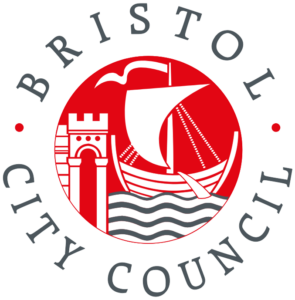Date of next review: August 2024
acta is committed to the right of all vulnerable adults to participate in acta projects in a safe and caring environment.
Protecting vulnerable adults from harm is the responsibility of all staff, freelance workers, volunteers and students on placement.
Definition
A vulnerable adult is defined as someone who is over 18 years of age and is receiving or may need help and services in order to live in the community. Vulnerable adults may be unable to care for themselves and/or be unable to protect themselves from harm or exploitation by other people.
acta recognises the large number of vulnerable adults participating in acta projects, and therefore requires a policy and guidelines for workers to follow. All members of acta, including both paid and voluntary staff in contact with vulnerable people, have a responsibility to identify incidents of abuse and report them. All suspicions, disclosures or allegations must be disclosed to the named Key Worker (Currently Ingrid Jones).
Aims and principles
- For workers to recognise vulnerable adults and to be aware of their needs
- Contribute and take whatever actions are needed to safeguard vulnerable adults
- For workers to know their role and the role of others as regards the protection of vulnerable adults
- To have a clear procedure in recording vulnerable adult protection concerns that workers are aware of – with careful consideration to who has access to this
- For workers to have access to phone numbers/sources of advice for supporting vulnerable adults eg. Bristol Drugs Project
- Workers be aware of the problems of promising confidentiality
- For workers to understand their role and responsibilities, and to follow Company guidelines regarding support to participants outside of acta sessions
Council of Management – responsibilities
The management committee has overall responsibility for vulnerable adults’ protection within the organisation. It will ensure that all reasonable steps have been taken to fulfil acta’s policy and to support any staff member who may be involved with a referral or disclosure. The management committee will:
- Ensure that the acta policy is produced, implemented and updated as required
- Ensure that all members of staff and volunteers are aware of vulnerable adult protection procedures
- Ensure that all staff, volunteers and students on placement receive an induction programme and appropriate training on acta’s vulnerable adults’ protection policy
- Nominate a vulnerable adults protection key worker to liase with the staff members on issues of vulnerable adults protection
- Be aware of their responsibilities as employers and implement good employment practises as part of vulnerable adults protection
The role of the Key worker
- To be the first point of contact for all workers in regard to vulnerable adult protection issues
- To have up to date information and telephone numbers, for support groups, Care Direct and all relevant bodies
- To support workers when they are faced with vulnerable adults’ protection issues
- To ensure all workers are aware of acta’s vulnerable adults’ protection policy
- To take a lead role in training all workers in vulnerable adults’ protection
- To ensure there is a record keeping system for all vulnerable adults’ protection matters, and workers are aware of its existence
- To decide on any necessary action, with the worker concerned
The role of the individual worker
- Responding to disclosures – All disclosures and /or suspicions of vulnerable adult protection issues should be referred to the Key worker for advice, decisions on further action and recording
- Allegations against workers or volunteers:
Should be responded to in the same way, as any disclosure, but confidentiality of record keeping must be closely considered
The matter should be brought to the attention of the line manager and the Key worker
Record keeping
- An electronic file is kept password secured on the acta database, to record all vulnerable adult protection matters, overseen by the Key Worker
- Workers should be aware of the importance of recording concerns in writing at the time the issue has arisen, with careful consideration to who has access to this
- Incidents recorded should also be seen by the line manager, to ensure appropriate support for the worker, as well as for the vulnerable adult concerned
- All notes should be clearly dated with time and place of either the observation or disclosure and relevant names
- Words used by the person should be detailed exactly, without any interpretation or correction by the worker
- Description to show the position of any cuts, bruises, burns etc should be added
Confidentiality
- Confidentiality should not be promised
- Disclosures should not be openly discussed with all colleagues
- Your first point of contact when a concern arises is always the Key Worker. It is not appropriate to discuss it first with the carer
- Confidentiality should be considered carefully when dealing with allegations against workers or volunteers
Designated lead: Ingrid Jones
Designated Trustee: Ruth Cochrane
Signed on behalf of acta
Ingrid Jones, Associate Director, August 2023
This policy will be reviewed on an annual basis
Date of next review: August 2024



